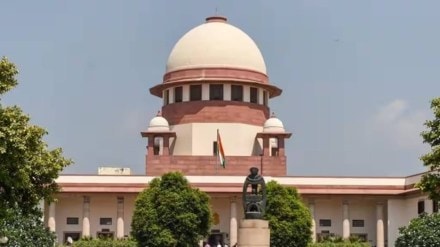The Supreme Court on Monday overturned its own verdict from 1998 that allowed Members of Parliament (MPs) and Members of Legislative Assemblies (MLAs) immunity from prosecution for receiving bribes in exchange for making speeches or casting votes in the legislature and Parliament.
After reserving its judgment on October 5, 2023, a seven-judge Constitution bench led by Chief Justice DY Chandrachud pronounced its verdict today. The central government had argued that parliamentary privilege should not shield lawmakers from legal consequences, pointing that immunity should not place them above the law.
Also Read:Centre can’t set borrowing limits for states: Kerala Govt in SC
The judgement follows two days of arguments involving a team of lawyers, including the Attorney General, Solicitor General, and amicus curiae P S Patwalia.
What was the case?
The seven-judge panel was re-evaluating a 1998 Supreme Court decision in the JMM bribery case, where MPs and MLAs were granted immunity for accepting bribes related to legislative activities. This reconsideration came 25 years after the Jharkhand Mukti Morcha (JMM) bribery scandal, prompting the Supreme Court to revisit its previous ruling.
The current verdict stems from the JMM bribery case involving Shibu Soren and four other party MPs who accepted bribes to vote against a no-confidence motion in 1993, ultimately saving the PV Narasimha Rao government. The Supreme Court had then quashed the CBI case against them, citing immunity under Article 105(2) of the Constitution.
Also Read:Supreme Court junks Asaram’s plea to suspend sentence on medical grounds in minor’s rape case
During the proceedings, the Supreme Court indicated its intention to assess whether the immunity granted to lawmakers extended to criminal actions related to bribery in their parliamentary duties. The Supreme Court agreed to reconsider its 1998 judgement on September 20, 2023, recognising the significance of the issue and its impact on the “morality of polity.”
The issue came under the Supreme Court’s lens again in 2019, when a bench headed by then CJI Ranjan Gogoi was hearing an appeal filed by Sita Soren, JMM MLA from Jama and daughter-in-law of party chief Shibu Soren, who was an accused in the JMM bribery scandal.
The Gogoi-led bench referred the pivotal question to a five-judge bench,highlighting its “wide ramification” and “substantial public importance.”
Sita Soren faced accusations of accepting bribes to vote for a specific candidate in the 2012 Rajya Sabha election. She contested the Jharkhand High Court’s refusal to quash the criminal case against her.
